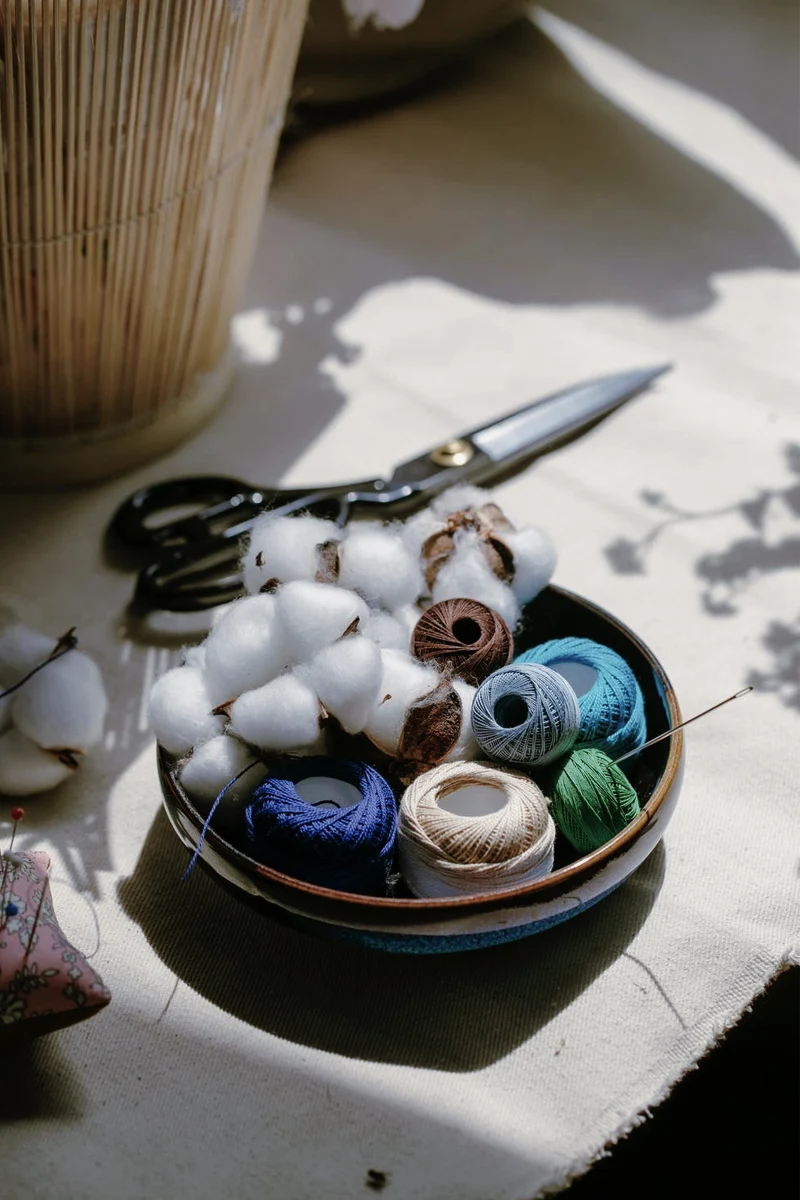Every one of us goes shopping. It may happen as often as every day, twice a week, or weekly. Shopping for new clothing has become a major 'feature' of modernity, and it is hard to imagine a person, who doesn't shop frequently. As a result, there are not many people who think about the results of such nonstop fashion consumption. Every time we buy something new, this action may go much further, than we think, taking its toll on the world around us.
This continuing chain connects the consumers with the fast-fashion brands, creating an ouroboros-like cycle. But, there are a few solutions to this impending problem. However, firstly, we all need to understand the important reasons why it is necessary to break the chain. Let's begin by choosing our clothing consciously and favor sustainable fashion brands such as Unplugged Byron Bay. And the positive improvements will come as a consequence.
Is Synthetic Fabric Eco-friendly?
Scientists have not come up with a single agreement, but it is believed that humanity started using clothes approximately 40,000 years ago. Since that time, we have all worn clothing and love treating ourselves to brand-new fashion finds. As a consumer, you probably have noticed that is getting harder and harder to find good-quality clothing, not even mention sustainable pieces. Globally, textile production is the most polluting industry in the world.
Some may wrongly believe that synthetic clothing is more environmentally friendly, as the production does not involve raw natural materials. However, taking into account the amount of negative influence on nature during the extraction and synthesis of oil, the gas emissions left by factories, and other dangerous substances that are recognized carcinogens, it doesn't sound very ecological. It is interesting to know if anyone ever thought about how many thousands of kilometers around such plants, the delicate natural balance of flora and fauna is disturbed?
Photo: Teona Swift
Is Buying All-natural Clothing Enough?
Most would probably say, that the solution to this problem is to buy everything natural. Little known, the production of such popular natural fabrics as flax and cotton may be just as harmful to our environment. Due to the heavy use of chemical substances and pesticides, cotton is considered the dirtiest crop in production. It requires a lot of watering and fertilizing.
Flax plant requires fewer fertilizers, nevertheless, the process of fabric production is far from being environmentally friendly. It involves complex manipulations like bleaching with chlorine and processing with heavy metals (including lead) and formaldehyde resins. A lot of the chemicals remain in the fibers, potentially penetrating the skin, and end up polluting the environment.
Besides, the chemical compound used in the production of flax, cotton, and synthetic fibers releases a massive amount of "volatile organic substances" also known as VOC, which are microparticles able to enter our bodies through the respiratory tract. VOCs all over the world are recognized as strong carcinogens, which also cause many allergies and diseases of the liver, bone marrow, and urogenital area. The best way to avoid GMO cotton textiles is to buy certified organic products. Below are nine reasons why you should choose clothes, bedding, and other organic cotton products.
Photo: İbrahim
- Protecting the World's Oceans
Regular cotton for clothing and textiles is usually combined with synthetic fabrics such as acrylic or polyester. Research shows that when we wash, these synthetic fibers enter our waterways in the form of microplastics. Don't want to contribute and make the problem worse? Avoid synthetic materials in general, including regular cotton blends. Instead, opt for sustainable fabrics and textiles made from 100% pure and natural materials.
- Conservation of water and energy resources
It takes 7600 liters of water to grow enough cotton to produce one pair of jeans. The water demand for cotton is so high that its cultivation has become one of the main reasons for the draining of the Aral Sea in Central Asia. Organic cotton has a much lower ecological footprint. Organic cotton production requires significantly less water and energy than conventional GMO cotton production.
Reducing exposure to hazardous insecticides and pesticides
Traditionally grown GMO cotton is one of the most toxic crops in the world. It accounts for only 2.5% of the world's arable land and, at the same time, up to 25% of insecticides in the world. Organic cotton farmers use only approved organic fertilizers, herbicides, and pesticides derived from plants, animals, and minerals to control pests and prevent crop diseases. This reduces the risk of health problems as well as protects agricultural workers and reduces environmental pollution.
- Reducing exposure to hazardous chemicals
Depending on the type of clothing, and the desired characteristics the manufacturer wants to achieve, there are a large number of toxic chemicals used in the production of regular cotton clothing. For example, “easy care” garments that are marketed as odor-free and wrinkle-free can be treated with formaldehyde. Other chemicals used in the manufacture of regular cotton clothing include chlorine bleach, ammonia, heavy metals, and phthalates, which can damage the endocrine system.
Azo-aniline dyes are also widely used. These dyes can cause mild to severe skin irritations, especially when there is friction between skin and tissue. Organic cotton products do not use all of the above chemicals, and bleaching is done with oxygen-containing bleaches that do not form toxic compounds.
Summarizing...
So, there you have it: 5 compelling reasons to weave sustainability into the fabric of your wardrobe. But this journey isn't about a one-time purchase or a fleeting trend. It's about reweaving the very narrative of fashion, one stitch at a time. Remember, you are not just a consumer; you are a changemaker. With every conscious choice you make, you contribute to building a more sustainable and just fashion future.
Lots of love,
Liz








.JPG)